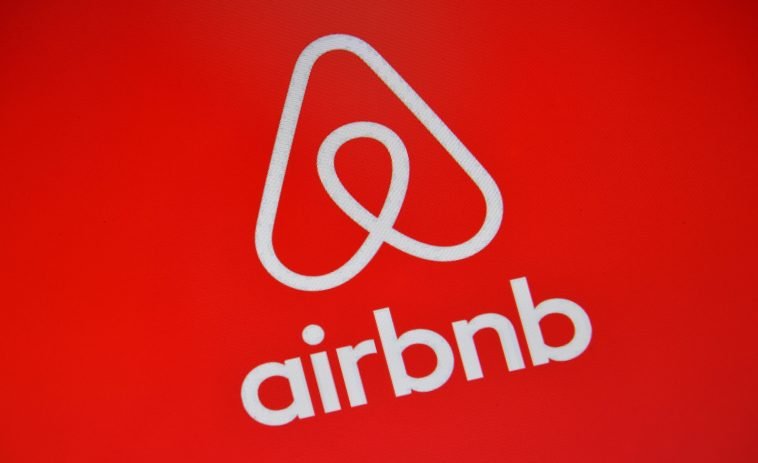Introduction
The Airbnb business model has completely changed how people book travel accommodations. Instead of booking hotels, travellers can choose from unique stays hosted by individuals, and for hosts, it can be a way to earn extra money.
If you’ve ever considered renting out a space in your home or investing in property to turn into a short-term rental, you’re not alone.
Many hosts have found ways to turn their Airbnb listings into profitable businesses, whether by renting out spare rooms or entire homes.
Starting an Airbnb business, though, requires some strategic thinking and planning, especially if you’re aiming for more than a little extra income.
Let’s dive into what it takes to get started with Airbnb, make money, and set up a business that works for you.
How Do I Start an Airbnb Business and Make Money?
Step 1: Understand How Airbnb Works.
To start a successful Airbnb business, you first need to understand the basics. Airbnb is an online marketplace that connects people looking for accommodations with property owners who want to rent out space.
This could be a spare room, an apartment, a vacation home, or even a unique space like a cabin or a tiny house.
Guests book directly through the platform, and Airbnb handles the payment processing, which can simplify things for new hosts.
Step 2: Research Your Market and Find the Right Property.
Before you list a property, it’s important to research the local market to understand demand, popular amenities, and seasonal trends.
This helps in determining your potential earnings, and whether the market can support your business goals. Here’s how to approach it:
- Explore Your Local Market: Research Airbnb listings in your area to see which types of properties are popular and check average nightly rates. This can help gauge demand and give you a sense of what kind of return you might see.
- Calculate Potential Profit: Use Airbnb’s income estimator, or similar tools, to get a rough estimate of how much you could earn each month.
- Consider Regulations: Check local laws regarding short-term rentals. Some cities have specific rules, including restrictions on how long you can rent out your property and requirements for permits or taxes.
Step 3: Prepare Your Space.
Now that you’ve found the right location and understand local requirements, it’s time to prepare the property itself.
To attract guests, you’ll want to ensure the space is comfortable, clean, and offers the amenities travelers are looking for.
- Furniture and Decor: Choose furniture that balances comfort and durability. A well-decorated space with modern amenities is likely to get more bookings.
- Amenities and Essentials: Wi-Fi, toiletries, a coffee maker, and a few basic kitchen supplies can make your property more appealing to guests.
- Cleanliness and Maintenance: Consider hiring a cleaning service to maintain high standards between guests. Cleanliness is one of the top factors in guest reviews, and it’s essential for positive ratings.
- Safety and Security: Provide clear instructions on emergency exits, install smoke and carbon monoxide detectors, and make sure locks are secure.
Step 4: Set Up Your Airbnb Listing.
Once your property is ready, it’s time to set up your Airbnb listing. The goal here is to stand out and show potential guests why they should choose your property over others. Here’s what to include:
- Write a Compelling Title and Description: Use your title and description to highlight your space’s unique qualities and nearby attractions. Mention key amenities and describe the atmosphere of your place.
- Photography Matters: High-quality photos are essential to showcase your property. If possible, invest in professional photos, or follow Airbnb’s photography tips to take appealing pictures.
- Set Competitive Pricing: Consider your local market’s average prices and adjust according to factors like seasonality, weekend rates, and local events. Some hosts use Airbnb’s Smart Pricing tool to automate adjustments based on demand.
Step 5: Manage Your Airbnb Business.
Once you’re up and running, managing an Airbnb business involves more than just collecting payments. Here are the main aspects to consider:
- Guest Communication: Timely responses to inquiries, sending welcome messages, and providing clear instructions can greatly improve guest satisfaction and reviews.
- Managing Bookings and Calendar: Keep your calendar updated to avoid double bookings. You can sync it with other booking platforms if you list on multiple sites.
- Cleaning and Turnover: Quick turnovers, especially during high-demand times, are crucial. Streamline this with a reliable cleaning service or an automated cleaning schedule.
- Guest Reviews and Feedback: Monitor guest feedback and implement changes where necessary. Positive reviews will improve your ranking on Airbnb and increase your chances of future bookings.
- Legal and Tax Obligations: Keep track of income, and be aware of any taxes or business licenses required in your area. Airbnb provides earnings reports to make it easier come tax season.
Pros and Cons of Starting an Airbnb Business
Pros
- Flexibility: Rent when you want, and set your own availability.
- Income Potential: Airbnb can be more profitable than traditional rentals in high-demand areas.
- Meeting New People: Some hosts enjoy connecting with guests from around the world.
Cons
- Time Commitment: Managing bookings, cleaning, and guest inquiries can be time-consuming.
- Potential Legal Hurdles: Local regulations may restrict rentals or require permits.
- Wear and Tear: Frequent use by guests can lead to quicker wear on furnishings and property features.
Frequently Asked Questions (FAQ)
1. How much does it cost to start an Airbnb business? Starting costs vary widely, depending on whether you already own a property or need to purchase or rent one. You’ll also need to budget for furniture, decor, initial cleaning, and listing fees. Some estimate initial costs can range from a few hundred dollars to tens of thousands, depending on property type and location.
2. Can I make a full-time income with Airbnb? Yes, it’s possible, though it depends on factors like location, occupancy rate, pricing, and the number of properties you manage. Hosts in popular locations with high booking rates can make a significant income, with some earning over $1,000 a month for a single room rental and even more for entire properties.
3. Are there any tax implications? Yes, Airbnb income is generally taxable. Hosts are responsible for reporting their earnings, and Airbnb provides annual earnings statements to help with this. Tax laws vary, so consulting a tax advisor is recommended.
4. What if a guest damages my property? Airbnb offers Host Protection and Host Guarantee programs, which can provide some coverage for damages caused by guests. However, reviewing the coverage limitations is important, and some hosts add private insurance for extra protection.
5. Do I need any special permits to list on Airbnb? It depends on your location. Some cities require permits or licenses for short-term rentals, and you may need to pay occupancy or tourism taxes. Always check with local authorities to ensure compliance.
Conclusion
Starting an Airbnb business can be rewarding, offering a unique opportunity to earn income while providing memorable experiences for travelers.
However, like any business, it requires planning, effort, and a good understanding of the market and regulations.
By following the steps and tips outlined here, you can create a thriving Airbnb business that meets your financial goals and lifestyle needs.
Are you ready to take the plunge and start your own Airbnb business, or are there still some questions on your mind about whether it’s right for you?





GIPHY App Key not set. Please check settings